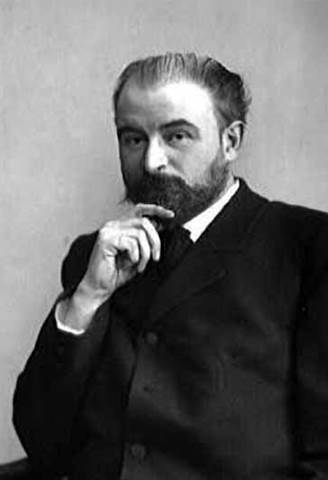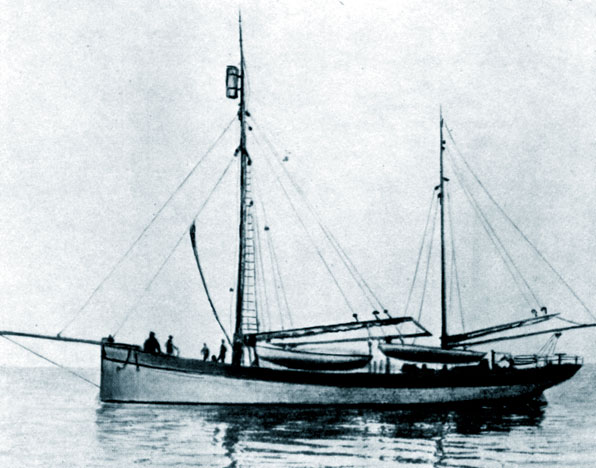|
Tyko Vylka
Tyko Vylka ( Nenets name Тыко Вылка, russian: Илья Константинович Вылка; 28 February 1886 – 28 September 1960) was a Soviet and Nenets painter and author, notable for his Arctic landscapes. He was also active in politics and has been elected the chairman of the Novaya Zemlya Island Soviet. Tyko Vylka has been a member of polar expeditions. Tyko in Nenets language means ''baby polar deer''. Ilya is the name he got when he was baptized. His gravestone in Kuznechevskoye Cemetery in Arkhangelsk uses ''Илья Константинович Тыко-Вылко'' (Ilya Konstantinovich Tyko-Vylko), which is incorrect. Biography Tyko Vylka was born in Belushya Guba in Novaya Zemlya in hunter's family. His father's name was Hanets (Konstantin) Vylka. In 1901, Vylka met Aleksandr Borisov, a pioneer of Russian Arctic landscape painting, who was travelling over the Arctic. Borisov took him into an expedition around Novaya Zemlya and gave him first drawing l ... [...More Info...] [...Related Items...] OR: [Wikipedia] [Google] [Baidu] |
Nenets Languages
Nenets (in former work also Yurak) is a pair of closely related languages spoken in northern Russia by the Nenets people. They are often treated as being two dialects of the same language, but they are very different and mutual intelligibility is low. The languages are Tundra Nenets, which has a higher number of speakers, spoken by some 30,000 to 40,000 people in an area stretching from the Kanin Peninsula to the Yenisei River, and Forest Nenets, spoken by 1,000 to 1,500 people in the area around the Agan, Pur, Lyamin and Nadym rivers. The Nenets languages are classified in the Uralic language family, making them distantly related to some national languages spoken in Europe – namely Finnish, Estonian, and Hungarian – in addition to other minority languages spoken in Russia. Both of the Nenets languages have been greatly influenced by Russian. Tundra Nenets has, to a lesser degree, been influenced by Komi and Northern Khanty. Forest Nenets has also been influenc ... [...More Info...] [...Related Items...] OR: [Wikipedia] [Google] [Baidu] |
Vasily Pereplyotchikov
Vasily Vasilievich Pereplyotchikov (russian: Васи́лий Васи́льевич Переплётчиков; (18 October 1863, Moscow – 1918, Moscow) was a Russian Empire landscape painter; associated with the Peredvizhniki from 1893 to 1901. Biography He was born to a family of well-to-do merchants and began his formal education at the . At the same time, he became interested in art and took private lessons from Alexander Kiselyov.Biographical notes @ RusArtNet. In 1872, he started auditing classes at the Moscow School of Painting, Sculpture and Architecture
[...More Info...] [...Related Items...] OR: [Wikipedia] [Google] [Baidu] |
Russian Landscape Painters
Russian(s) refers to anything related to Russia, including: *Russians (, ''russkiye''), an ethnic group of the East Slavic peoples, primarily living in Russia and neighboring countries *Rossiyane (), Russian language term for all citizens and people of Russia, regardless of ethnicity *Russophone, Russian-speaking person (, ''russkogovoryashchy'', ''russkoyazychny'') *Russian language, the most widely spoken of the Slavic languages *Russian alphabet *Russian cuisine *Russian culture *Russian studies Russian may also refer to: *Russian dressing *''The Russians'', a book by Hedrick Smith *Russian (comics), fictional Marvel Comics supervillain from ''The Punisher'' series *Russian (solitaire), a card game * "Russians" (song), from the album ''The Dream of the Blue Turtles'' by Sting *"Russian", from the album ''Tubular Bells 2003'' by Mike Oldfield *"Russian", from the album '' '' by Caravan Palace *Nik Russian, the perpetrator of a con committed in 2002 *The South African name for a ... [...More Info...] [...Related Items...] OR: [Wikipedia] [Google] [Baidu] |
Russian Male Painters
Russian(s) refers to anything related to Russia, including: *Russians (, ''russkiye''), an ethnic group of the East Slavic peoples, primarily living in Russia and neighboring countries * Rossiyane (), Russian language term for all citizens and people of Russia, regardless of ethnicity *Russophone, Russian-speaking person (, ''russkogovoryashchy'', ''russkoyazychny'') * Russian language, the most widely spoken of the Slavic languages *Russian alphabet * Russian cuisine * Russian culture * Russian studies Russian may also refer to: * Russian dressing *''The Russians'', a book by Hedrick Smith * Russian (comics), fictional Marvel Comics supervillain from ''The Punisher'' series * Russian (solitaire), a card game * "Russians" (song), from the album ''The Dream of the Blue Turtles'' by Sting *"Russian", from the album ''Tubular Bells 2003'' by Mike Oldfield *"Russian", from the album '' '' by Caravan Palace * Nik Russian, the perpetrator of a con committed in 2002 *The South African n ... [...More Info...] [...Related Items...] OR: [Wikipedia] [Google] [Baidu] |
1960 Deaths
Year 196 ( CXCVI) was a leap year starting on Thursday (link will display the full calendar) of the Julian calendar. At the time, it was known as the Year of the Consulship of Dexter and Messalla (or, less frequently, year 949 '' Ab urbe condita''). The denomination 196 for this year has been used since the early medieval period, when the Anno Domini calendar era became the prevalent method in Europe for naming years. Events By place Roman Empire * Emperor Septimius Severus attempts to assassinate Clodius Albinus but fails, causing Albinus to retaliate militarily. * Emperor Septimius Severus captures and sacks Byzantium; the city is rebuilt and regains its previous prosperity. * In order to assure the support of the Roman legion in Germany on his march to Rome, Clodius Albinus is declared Augustus by his army while crossing Gaul. * Hadrian's wall in Britain is partially destroyed. China * First year of the '' Jian'an era of the Chinese Han Dynasty. * Emperor ... [...More Info...] [...Related Items...] OR: [Wikipedia] [Google] [Baidu] |
1886 Births
Events January–March * January 1 – Upper Burma is formally annexed to British Burma, following its conquest in the Third Anglo-Burmese War of November 1885. * January 5– 9 – Robert Louis Stevenson's novella '' Strange Case of Dr Jekyll and Mr Hyde'' is published in New York and London. * January 16 – A resolution is passed in the German Parliament to condemn the Prussian deportations, the politically motivated mass expulsion of ethnic Poles and Jews from Prussia, initiated by Otto von Bismarck. * January 18 – Modern field hockey is born with the formation of The Hockey Association in England. * January 29 – Karl Benz patents the first successful gasoline-driven automobile, the Benz Patent-Motorwagen (built in 1885). * February 6– 9 – Seattle riot of 1886: Anti-Chinese sentiments result in riots in Seattle, Washington. * February 8 – The West End Riots following a popular meeting in Trafalgar Square, Lo ... [...More Info...] [...Related Items...] OR: [Wikipedia] [Google] [Baidu] |
Nicholas II Of Russia
Nicholas II or Nikolai II Alexandrovich Romanov; spelled in pre-revolutionary script. ( 186817 July 1918), known in the Russian Orthodox Church as Saint Nicholas the Passion-Bearer,. was the last Emperor of Russia, King of Congress Poland and Grand Duke of Finland, ruling from 1 November 1894 until his abdication on 15 March 1917. During his reign, Nicholas gave support to the economic and political reforms promoted by his prime ministers, Sergei Witte and Pyotr Stolypin. He advocated modernization based on foreign loans and close ties with France, but resisted giving the new parliament (the Duma) major roles. Ultimately, progress was undermined by Nicholas's commitment to autocratic rule, strong aristocratic opposition and defeats sustained by the Russian military in the Russo-Japanese War and World War I. By March 1917, public support for Nicholas had collapsed and he was forced to abdicate the throne, thereby ending the Romanov dynasty's 304-year rule of Russia (1 ... [...More Info...] [...Related Items...] OR: [Wikipedia] [Google] [Baidu] |
Abram Arkhipov
Abram Efimovich Arkhipov (russian: Абра́м Ефи́мович Архи́пов; – 25 September 1930) was a Russian realist artist, who was a member of the art collective The Wanderers as well as the Union of Russian Artists. Biography Born in the village of Yegorovo in the Ryazan Oblast Arkhipov (birth name Abram Efimov chPyrikov) left for the Moscow School of Painting, Sculpture and Architecture in 1877, where he would fall under the tutelage of various Russian artists including Vasily Perov, Vasily Polenov and Vladimir Makovsky. In 1883, Archipov went to study at the Imperial Academy of Arts at Saint Petersburg, he would stay there two years, before returning to complete his studies in Moscow. Some evidence suggests that Arkhipov's ancestors were poor Russified Jewish farmers who had moved to the Ryazan province Ryazan Oblast. Antisemitic contemporaries regarded Arkhipov, Ilya Repin and Isaac Levitan as Jewish aliens in Russian culture. Arkhipov was accepted ... [...More Info...] [...Related Items...] OR: [Wikipedia] [Google] [Baidu] |
Nenets People
The Nenets ( yrk, ненэй ненэче, ''nenəj nenəče'', russian: ненцы, ''nentsy''), also known as Samoyed, are a Samoyedic ethnic group native to northern Arctic Russia, Russian Far North. According to the latest census in 2010, there were 44,857 Nenets in the Russian Federation, most of them living in the Yamalo-Nenets Autonomous Okrug, Nenets Autonomous Okrug and Taymyrsky Dolgano-Nenetsky District stretching along the coastline of the Arctic Ocean near the Arctic Circle between Kola and Taymyr peninsulas. The Nenets people speak either the Tundra or Forest Nenets languages, which are mutually unintelligible. In the Russian Federation they have a status of indigenous small-numbered peoples. Today, the Nenets people face numerous challenges from the state and oil and gas companies that threaten the environment and their way of life. As a result, many cite a rise in locally based activism. Name The literal morphs ''samo'' and ''yed'' in Russian convey the meani ... [...More Info...] [...Related Items...] OR: [Wikipedia] [Google] [Baidu] |
Vladimir Rusanov
Vladimir Alexandrovich Rusanov (russian: Влади́мир Алекса́ндрович Руса́нов; – ca. 1913) was a Russian geologist and Arctic explorer. Early life Rusanov was born in a merchant's family in Oryol, Russia. His early life was marred by hardship when his father went bankrupt before dying while Rusanov was still a child. Rusanov's widowed mother struggled to bring up the family but managed to send her son to the Oryol Gymnasium (Grammar School). Rusanov however began to be involved with Marxist revolutionaries. He was arrested by the police who while they could not prove anything informed the gymnasium leading to his expulsion. Rusanov therefore joined a theological seminary. Rusanov entered the natural sciences faculty at Kiev University in 1897. At Kiev he was involved in Marxist activities and was again expelled and briefly imprisoned. While in jail he was inspired by books about Fridjtof Nansen's Arctic voyages and resolved to become a polar explorer ... [...More Info...] [...Related Items...] OR: [Wikipedia] [Google] [Baidu] |



_kvinner_og_barn_foran_inngangen_til_teltet_sitt._(6435260555).jpg)
